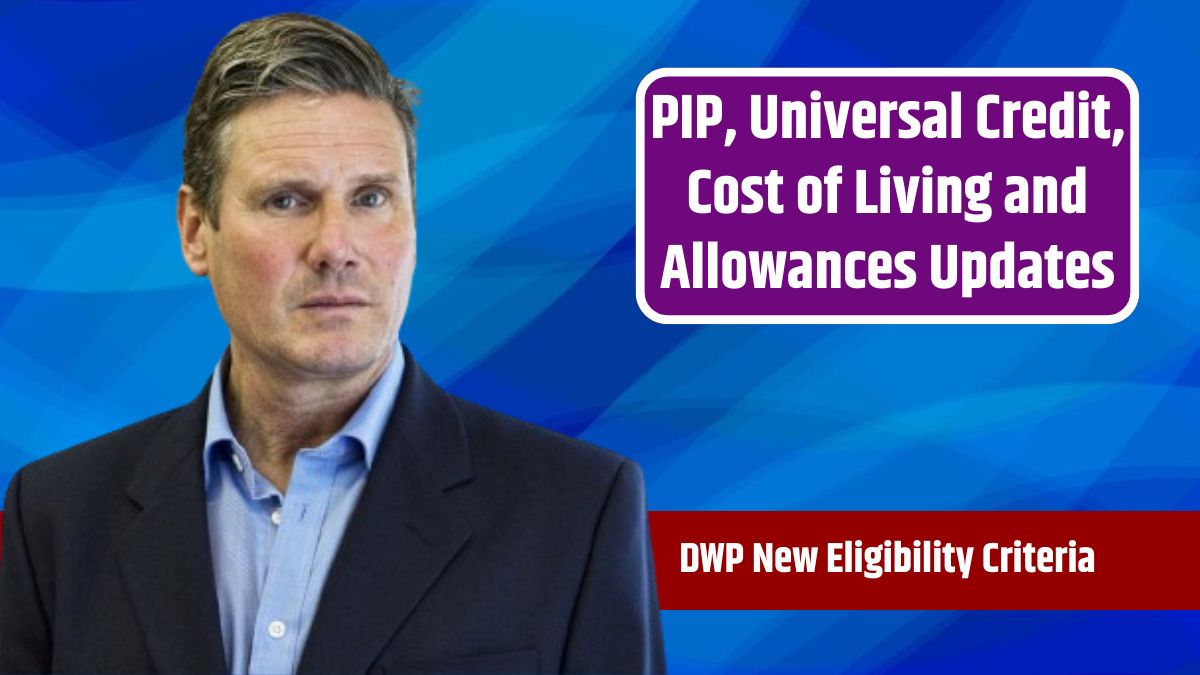The Department for Work and Pensions (DWP) has introduced new eligibility criteria for various benefits in 2024, aiming to provide better financial support to those in need across the UK. These changes affect Personal Independence Payment (PIP), Universal Credit, and the cost of living allowances, among other benefits. The DWP’s updates reflect the government’s commitment to easing the financial pressures faced by millions of citizens due to rising living costs. Here’s a detailed look at the new eligibility criteria and what they mean for claimants.
PIP
The Personal Independence Payment (PIP) is designed to help individuals with long-term health conditions or disabilities manage their living expenses. As of 2024, the DWP has updated the eligibility criteria for PIP to ensure that support reaches those who need it the most.
Key Criteria:
- Residency and Age: Applicants must reside in the UK and be aged between 16 and 64 years.
- Health Condition: The applicant must have a long-term health condition or disability expected to last at least 12 months or more.
- Daily Living and Mobility Needs: The new criteria focus on assessing the impact of the applicant’s condition on their ability to perform daily tasks and their mobility. This determines the level of financial support provided.
The DWP has also announced a summer payment from the extended Household Support Fund, aimed at helping people cope with the increased cost of living. This payment is expected to provide additional relief to eligible PIP recipients.
Universal Credit
Universal Credit (UC) has undergone several changes in 2024 to align with the evolving needs of the population. The new criteria focus on ensuring that the benefit is available to those with the greatest need, particularly those with limited income or facing high living costs due to disability or other factors.
Key Criteria:
- Income: Applicants must have limited income, with specific thresholds set to determine eligibility.
- Age: Individuals must be aged 18 or older but below the State Pension Age.
- Disability and Employment Status: The criteria prioritize those who are unemployed, underemployed, or facing higher living costs due to disabilities or the need for special equipment.
- Assets: To qualify, the claimant’s total assets and savings must not exceed £16,000.
Universal Credit replaces several older benefits, consolidating them into a single monthly payment to simplify the support system. This makes it easier for claimants to manage their finances while receiving the support they need.
Cost of Living and Allowances
The cost of living crisis has prompted the DWP to introduce new eligibility criteria for cost of living payments and other allowances. These payments aim to assist individuals and families struggling to keep up with rising expenses.
Key Criteria:
- Health Conditions: Individuals unable to work due to severe health issues, such as chronic illness or significant impairments, qualify for additional support.
- Pensioners: The elderly receiving the Guarantee Credit part of Pension Credit are eligible for cost of living payments.
- Employment and Support Allowance (ESA): Those who receive income-based ESA are also eligible for the payout.
- Low-Income Individuals: Citizens earning below certain income thresholds, which qualify them for other benefits like free school meals, are also entitled to receive the cost of living payment.
The DWP’s summer cost of living payment is distributed through local authorities, which have the discretion to allocate funds based on the specific needs of their communities. This ensures that support is tailored to address the most pressing concerns within each area.
Local Authority
One of the key aspects of the new eligibility criteria is the discretion given to local authorities in distributing cost of living payments. While the DWP provides general guidelines, local councils can customize the support based on local needs. This approach allows for more targeted assistance, ensuring that those in dire need receive adequate help.
Local authorities will work closely with professionals, such as social workers and health visitors, to assess who should receive support and determine the appropriate amount. This collaborative effort aims to ensure that the financial aid is both effective and responsive to the unique challenges faced by different communities.
In conclusion, the DWP’s new eligibility criteria for 2024 reflect a focused effort to provide meaningful support to those most affected by rising living costs and economic challenges. By updating the requirements for PIP, Universal Credit, and cost of living payments, the government aims to create a more efficient and effective safety net for vulnerable populations.
FAQs
Who is eligible for the new PIP criteria in 2024?
UK residents aged 16-64 with long-term health conditions.
What are the income limits for Universal Credit eligibility?
Claimants must have limited income and less than £16,000 in assets.
How do local authorities decide on cost of living payments?
They assess community needs, guided by DWP guidelines and professional advice.
What age group is eligible for Universal Credit?
Individuals aged 18 to under State Pension Age qualify.
Can pensioners receive cost of living payments?
Yes, if they receive the Guarantee Credit part of Pension Credit.
